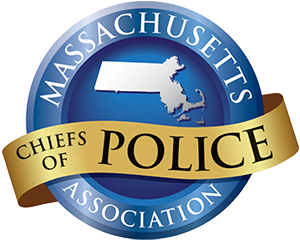A Brief History of the MCOPAOn the Saturday afternoon of November 5, 1887, a group of local police chiefs met at Young’s Hotel, in downtown Boston and voted to organize the Massachusetts Chiefs of Police Association (MCOPA), the first organization of its kind in this country. The following Chiefs were present and became the Charter Members of the MCOPA: Chief Cloyes of Cambridge, Chief Parkhurst of Somerville, Chief Sibley of Chelsea, Chief Washburn of Worcester, Chief Bailey of Brockton, Chief Hart of Salem, Chief Neil of Lynn, Chief O’Sullivan of Lawrence, Chief Burleigh of Waltham, Chief Wood of Lowell, Chief Hammond of Newton, Chief Richards of Malden, Chief Dow of Taunton, Chief Douglas of Gloucester, Chief Hammond of Haverhill and Chief Hecker of Newburyport. Also present that day was Superintendent Benjamin P. Eldridge of the Boston Police Department who, six years later, in 1893, became one of the founders of the International Association of Chiefs of Police (IACP) and served as the second President of the IACP from 1895-1897. The declared purpose of the MCOPA was mutual support. They adopted by-laws and a constitution and they elected Chief Cloyes of Cambridge as their first President. They agreed to meet monthly to discuss mutual problems and they selected for their motto “In Unity There is Strength”. They stated that it would be their objective to aid and assist their fellow members in the discharge of their duties, to give counsel and advice on all important questions involving law enforcement and to assist each other in all matters relating to the welfare of the Association and its individual members. The police service in those early days was an uncomplicated operation. Police departments were organized and staffed to maintain the peace and good order in what was a relatively orderly society. But as the problems of modern living became increasingly more complex, the problems facing the police have multiplied. Changing times – changing social values – and changing public attitudes have placed demands on the police service – and upon police chiefs – that were unheard of a few generations ago. Little is known of what the MCOPA accomplished during the first half of its existence, as the history of its early years is lost to antiquity. It is believed that in the early days the MCOPA President conducted the Association's affairs out of his own police station. The President served two, three or more years and whatever records he kept went with him when he left office. So the institutional memory of the MCOPA goes back only sixty years to the advent of our legendary Secretary-Treasurer, Chief Hector J. Pelletier of Cohasset. Chief Pelletier became the President of the MCOPA in 1940 and shortly thereafter became its first Secretary-Treasurer, a position he held until the day of his death. Almost single-handedly, he reorganized the Association into what it is today. He opened up the first Association office in Cushing Plaza in Cohasset. Under his guidance, the Association was incorporated on May 2, 1949. Under Chief Pelletier, the MCOPA, for the first time, became a political action force in the State Legislature advocating and supporting legislation important to the field of law enforcement and to those who serve in it. In the State House, Chief Pelletier became affectionately known as “Mr. Police Chief”. Chief Pelletier retired from the Cohasset Police Department on May 29, 1967 and died on April 22, 1976. During his long illness, prior to his death, Chief J. Merritt Wenzel of Wakefield, who was MCOPA President in 1966, served as Acting Secretary-Treasurer and he held the Association together during that period. To replace Chief Pelletier, Chief John J. Hanlon of the Worcester Police Department was appointed Secretary-Treasurer. His experience as the administrator of a large city police department was most valuable to the MCOPA at that time, especially during the early years of the Municipal Police Institute, (the MPI), which became the planning, training and research resource for the Association and its members. In 1981, Chief Hanlon was succeeded by Chief Paul L. Doherty of the State Capitol Police and his title was changed to Executive Director to be consistent with Police Chiefs’ Associations in other states. Chief Doherty served as President of the MCOPA in 1970. During his Presidency, he acquired an intimate knowledge of state government, especially the State Legislature and for years he chaired the Legislative Committee of the MCOPA. This special knowledge proved to be invaluable when the Association sponsored legislation beneficial to the Association, to its members and to law enforcement in general. As Chief Doherty was a Past President, he was always available to provide advice and guidance to each new President of the Association as they took office. Chief Doherty also organized the Annual MCOPA Scholarship Fund for deserving students who were related to an active or retired member of the Association. This program has assisted many young students, a large percentage of whom have gone on to a career in some branch of law enforcement. At Chief Doherty’s suggestion, the Scholarship Fund was named in honor of the late Chief Hector J. Pelletier. In 1982, with the support of then President John D. Coyle, Jr., Chief of the North Attleboro Police Department, Chief Doherty organized the Sustaining Membership Program. This program provided the MCOPA with the financial capability to expand its membership services, particularly its legal services, which were greatly favored by the members. Annual seminars were also conducted which were well attended by the Chiefs. As Executive Director, Chief Doherty served the MCOPA faithfully for sixteen years until his retirement in 1997. Chief George J. DiBlasi of the Norwood Police Department was selected as the next Executive Director. Chief DiBlasi was well known as a progressive police administrator. He was an early proponent of Community Policing and his introduction of this policy of resolving neighborhood problems at the neighborhood level was most successful in the Town of Norwood. On taking office as Executive Director, Chief DiBlasi stated that it would be his fundamental purpose to develop a course of action that would successfully shape the future of the MCOPA into the next century. His energy and enthusiasm infused the Association with a new sense of purpose and direction. Chief DiBlasi envisioned a unified, mutually supportive organization that would effectively represent the best interests of the Association and all of its members. Since that time, the MCOPA has continued to grow, under the vision and leadership of its successive Executive Directors and Executive Board members. The success of the MCOPA is rooted in the participation of its membership, and together, the Chiefs belonging to the MCOPA have been able to make great strides in the advancement of the law enforcement profession.
|








